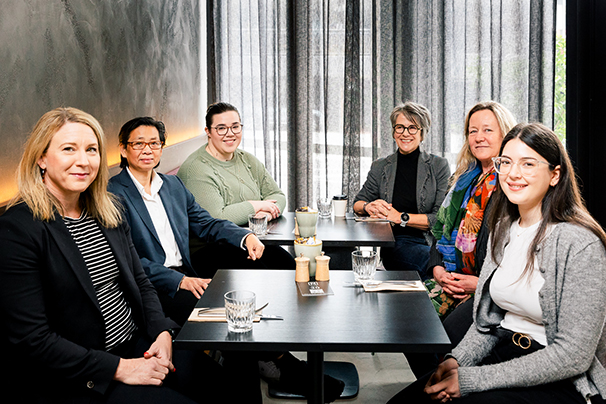University of Canberra Tackles Social Isolation in Belconnen and Bruce with Youth-Focused Project
University of Canberra academics have set up a local initiative to tackle social isolation for people aged 18-30 living in the Belconnen and Bruce suburbs – a demographic with high rates of loneliness.
“Loneliness is a global health issue that is attracting attention from governments and policymakers worldwide,” said Professor Rachel Davey, Director of the University’s Health Research Institute (HRI). “It is linked to anxiety, depression, and conditions such as stroke and cardiac disease. In terms of risk of premature death, it is likened to smoking 15 cigarettes a day.”
The Wellbeing and Resilience Unit at HRI has been collecting and analysing data on loneliness in the ACT since 2019, and this research has informed the Legislative Assembly’s Inquiry into Loneliness and Social Isolation in the ACT.
Recommendations from the Inquiry were published in August 2024, and included addressing social connection, loneliness and social isolation across all levels of government.
Along with senior research fellows Dr Barbara Walsh, Dr Cathy Hope and research officer Andrea Gledhill, the HRI team are aiming to tackle loneliness from the ground up in their new project, Connect Up 2617 – named after the suburbs’ postcode.
Funded by the federal government’s Medical Research Future Fund (MRFF), Connect Up was developed by the HRI with Belconnen and Bruce communities. It will trial sustainable ways for residents aged between 18-30 to meaningfully connect, create and share experiences, and develop a sense of community belonging.
ACT Wellbeing data indicates that this age demographic experiences the highest rate of loneliness and the lowest levels of social cohesion reported of any age group.
“This age group may experience a lot of transience from changing life circumstances,” said Dr Walsh. Compounded with the social and economic shifts in recent years, from the pandemic to cost of living pressures, these experiences can lead to lower social connection and feelings of loneliness.
The on-the-ground facilitators of the project are called Community Connectors’, who will work with residents, community governance and the HRI team to promote existing local programs and initiate new activities.
HRI has recruited eight Connectors, all of whom are aged 18-30 and live locally in Belconnen or nearby suburbs. They include international students, a staffer who works with migrants and refugees, and a young parent.
“Our community connectors have been involved through the consultation and co-design of the project from the start,” said Dr Walsh, who helped facilitate a training workshop for the Connectors on 30 August.
“They all have different backgrounds, expertise, knowledge and interests, whether it be food and cooking, sport, environmental sustainability, and community engagement. They’ll be on the ground, developing a social infrastructure and a culture of community connection.”
Professor Davey explained that as more research is carried out into the causes and impacts of loneliness, interventions are being approached from a community standpoint – rather than being seen as an issue for individuals.
“We need to work together on it,” she said. “We’ve created the circumstances in which people are lonely, so we all need to tackle it from a range of different perspectives.”
The first stage of the project began in April 2024, in which HRI formed a working group that included more than 140 residents of Belconnen and Bruce. This was followed by a series of co-design workshops with residents, University representatives, community groups and local organisations.
“The model of Connect Up is multilayered because it’s a community issue, not an individual issue,” said Dr Walsh.
As well as liaising with organisations and stakeholders, HRI will oversee the whole project, and its all-important evaluation. “Evaluation is crucial so that we know what kinds of activities or approaches might assist with strengthening social connection,” said Professor Davey.
“Globally, there is a lack of research into loneliness interventions that work, so we’re hoping to contribute to that knowledge and to make a difference in the process.”

